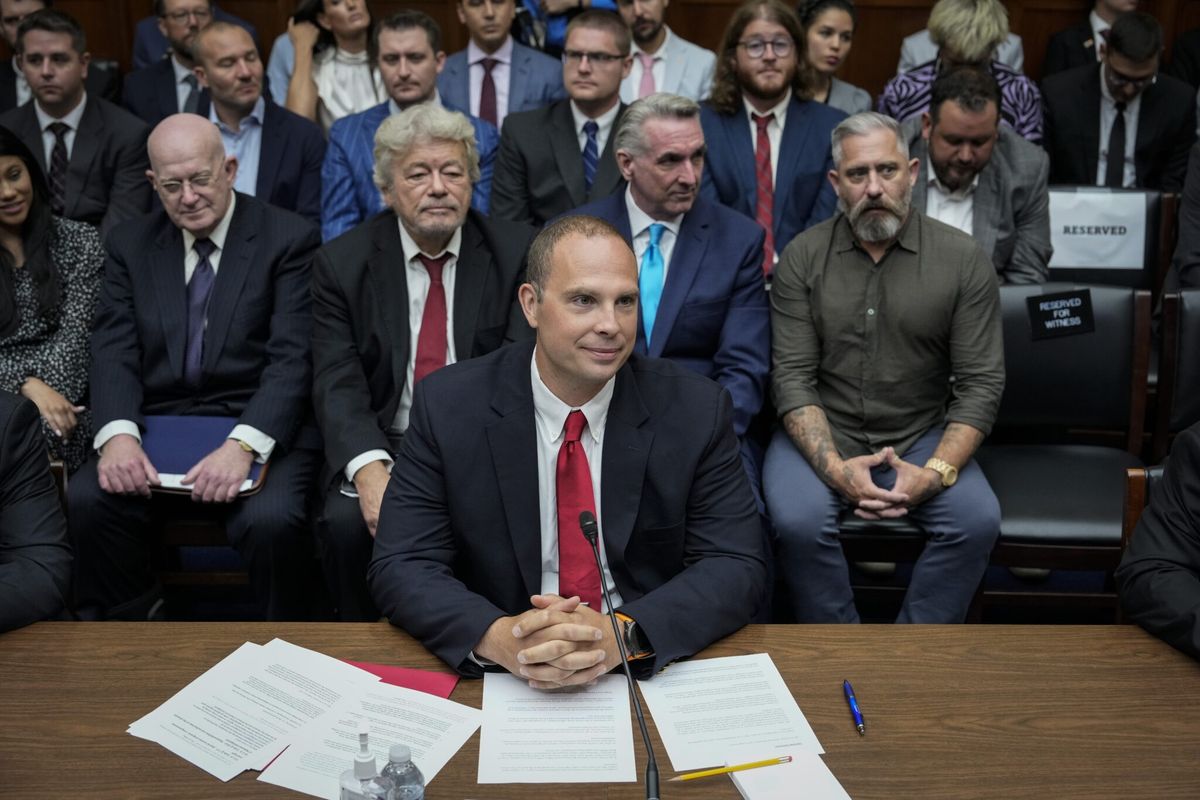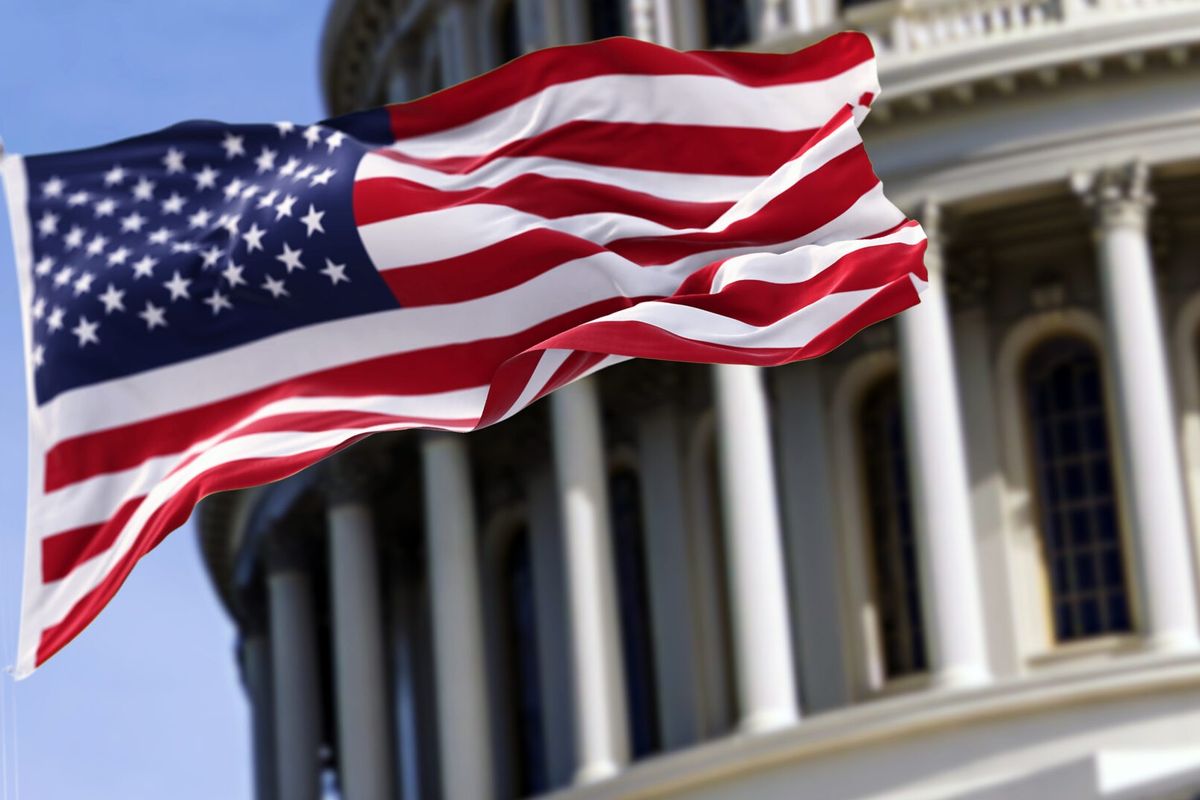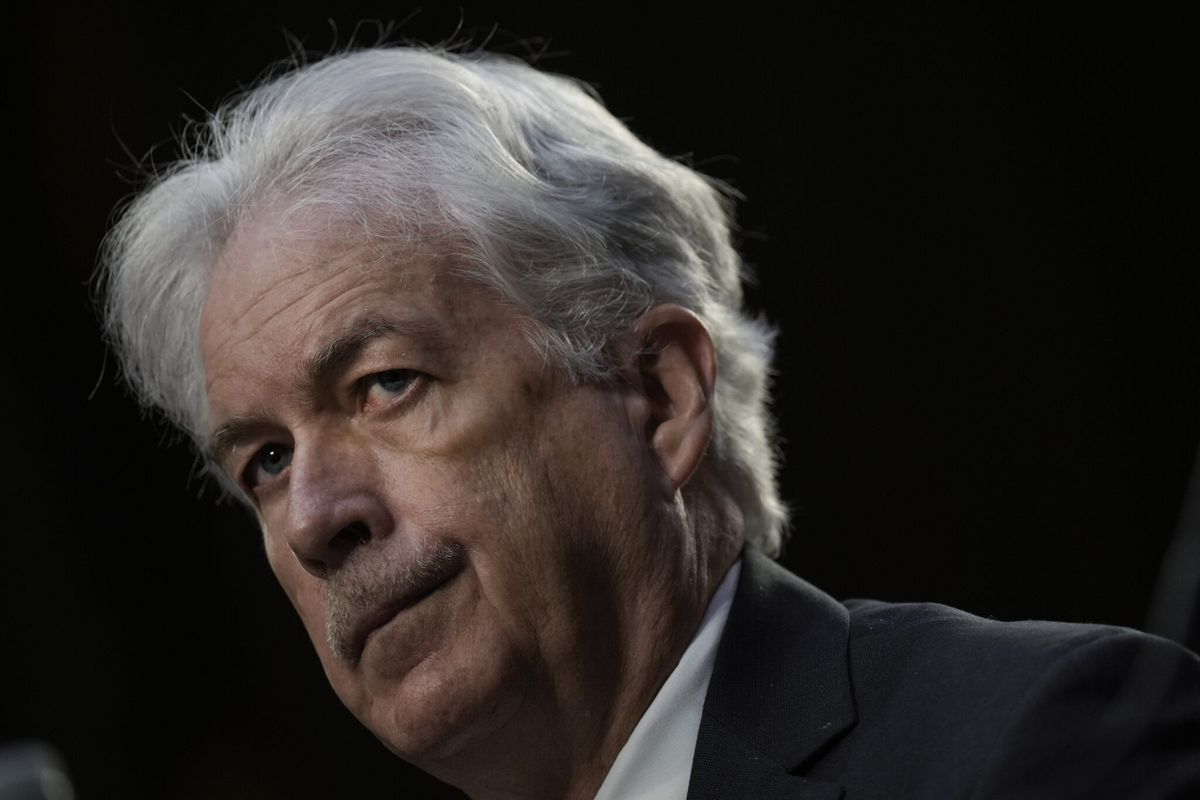SUBSCRIBER+EXCLUSIVE INTERVIEW — The battle for Bakhmut, where Russian paramilitaries have been leading an eight-month effort to take the symbolically significant Ukrainian city, was widely expected to be at least a boost for beleaguered Russian morale, if not a stepping-stone for eastern Ukraine. But this week, it was Ukrainian forces who were reportedly advancing with their first major battlefield gains in the struggle to capture what was once a 17th century fort town.
"The advance of our troops along the Bakhmut direction is the first success of offensive actions in the defense of Bakhmut," Colonel General Oleksandr Syrskyi, Ukrainian Commander of Ground Forces, said Monday, in his country’s first major operation since November.
The move comes amidst a series of public controversies this week involving the head of Russia's Wagner group, Yevgeny Prigozhin, who recently threatened to withdraw from Bakhmut amidst squabbling with Russian Defense Minister Sergei Shoigu. Prigozhin was also the focus of a Washington Post story this week about an alleged backroom deal to betray Russian forces – something he called “a beautiful, planted story.”
Reports of Ukrainian advances, along with Prigozhin's many controversies, seem to have only added to growing speculation of possible turmoil within Moscow’s inner circles. We turned to Cipher Brief Expert Lt. General Robert P. Ashley (Ret.) - former director of the Defense Intelligence Agency (DIA) - to better understand how he is looking at events unfolding in Ukraine and beyond.
The full brief was available live for Subscriber+Members. The transcript below is a portion of the full conversation and has been edited for length and clarity.
Lt. Gen. Robert P. Ashley, Former Director, Defense Intelligence Agency
Lieutenant General Robert P. Ashley, Jr. is a career Army intelligence officer having served over thirty-six years on active duty. He retired from the Army on 1 November 2020. His final assignment was as the 21st Director of the Defense Intelligence Agency from October 2017 to October 2020 where he reported directly to the Under Secretary of Defense for Intelligence and Security and the Secretary of Defense. In 2016 he was appointed the Army Deputy Chief of Staff, G-2. He was the senior advisor to the Secretary of the Army and Army Chief of Staff for all aspects of Intelligence, Counterintelligence and Security, and responsible for the training, equipping, policy and oversight of the Army Intelligence Corps’ 58,000 Soldiers and civilians
The Cipher Brief: Given your experience as head of the Defense Intelligence Agency, do you believe there is there an opportunity here for the US to exploit a divide between Yevgeny Prigozhin and Vladimir Putin?
Lt. Gen. Robert Ashley (Ret): I'm sure that's being considered. Anything that we get into, something that's operational in nature, that would be a sensitive issue, is not for open discussion. But I think we're always looking for any kind of scene within the Russian leadership, within Russian's relationships with other nations, within Russian's relationship with the Chinese, whether it be at the presidential level or other levels. How do you create some degree of discord in that situation? The other interesting dynamic is the nature of where the oligarchs are, their losses through the sanctions, inability to travel, loss of key assets, all of that having a cumulative effect at some degree. At the same time, you still see Putin with 70 plus percent approval ratings. And then we have what I would call a false flag event, with the recent drones over the Kremlin. That allows him an opportunity to really rally the nation around what he's doing in Ukraine.
The Cipher Brief: When we saw images of that drone exploding over the Kremlin, questions emerged about Russia’s role in influence operations, information operations. Did that go through your mind when you saw those images?
Lt. Gen. Robert Ashley (Ret): It did. I thought about a false flag because the timing of it is really counterintuitive for where Zelensky and the Ukrainian military [are] right now. Because as you're preparing for, ostensibly, what we're all anticipating, is this counter offensive. You're not looking to precipitate additional attacks prior to that from the Russians. That would cause you to either move forces or to lose some assets or have to shift your prior group efforts. It's not something I would've seen the Ukrainians doing. The false flag for me is kind of the leading piece of that because the Kremlin's probably one of the best defended buildings in the world. And for someone to get in there and launch a drone, not impossible, but probably unlikely in this context.
And then for Russia to play the story that someone was trying to assassinate Putin because he's in the Kremlin is silly. He doesn't stay in the same place all the time. He moves around. So that just kind of takes away the credibility of the accusation that this was assassination attempt. I think it is a false flag. And you alluded to the disinformation from the Russians, which is called Active Measures, and there's probably nobody that's better at disinformation than the Russians.
Looking for a way to get ahead of the week in cyber and tech? Sign up for the Cyber Initiatives Group Sunday newsletter to quickly get up to speed on the biggest cyber and tech headlines and be ready for the week ahead. Sign up today.
The Cipher Brief: Back in February the Cipher Brief was in Kyiv and there was a lot of talk about a Russian offensive that was coming. And now, in May, we're talking about a Ukrainian counter-offensive. It seems as though there's not going to be any one counter-offensive that ends this war. How are you thinking about what's coming next?
Lt. Gen. Robert Ashley (Ret): There are multiple potential outcomes to this. One is that the Ukrainians are successful and gather some additional land. The other is that the Russians are successful and there's not really much of a trade in the way of land. Or the Ukrainians try to go down and cut off the ground passes in the area into Crimea. We're probably going to see some very modest gains from the Ukrainians and additional losses by the Russians. But there's nothing that's going to be conclusive or that would bring an end to the conflict. I think this is going to be a continued slog, which will go into next year.
You see the level of carnage, both physically and on the population, for the militaries on both sides and you're starting to see these discussions coming out now from the Secretary of State, where you've got overtures from the Chinese. At what point do we reach a level of destruction where both sides have to realize that the Russians are not going to take Kyiv and the Ukrainians are not going to be able to push the Russian forces completely out and reestablish absolute sovereignty prior to 2014?
You're going to see discussions on what has to be the end of any military conflict, which is some form of political outcome, even though both sides will hold to their maximalist objectives at this point. But I still think we're looking at more of the same for the better part of the rest of the year until we get back into the winter cycle.
The Cipher Brief: Is that in the best interest of the United States? And if there is a negotiated outcome, it has to be brokered by someone. We know that China has put forth a proposal. How do you feel about their proposal and who do you think should be the one brokering any kind of end to this conflict?
Lt. Gen. Robert Ashley (Ret): I think there's going to have to be a kind of collective. China's part of that potentially. And Secretary Blinken’s not opposed to that. But I think you'll see a broader European role. I don't think any one entity is going to be able to come in and broker a peace. And again, for Putin right now, he's got to figure out some means by which this can be done in a way that he can put a positive spin on it. And he could put any spin he wants, to say that he's consolidated what his objectives were, which were somewhat adjusted after the initial failures of trying to take the capital and all of the country. To say that we've established footholds in the oblasts that we intended to, even though they don't have full control of those, the story remains problematic.
But I think you're going to see a collective of European nations, potentially China and the US, looking for those kinds of opportunities, but at the same time continue to back Ukrainians. [Chairman of the US Joint Chiefs Mark Milley] said every conflict has to come to an end with some political outcome. The timing of that is what we don't know, whether that is going to be in this calendar year or whether it's going to continue on next year. Clearly, Putin is looking for the longer-term conflict to be to his advantage, but still [the Russians] don't have the ability to really take over the country. And even if they were to hold in the oblasts that they have in the Eastern regions, you're still going to have a pretty significant kind of a counterinsurgency effort by the Ukrainians. It's going to make it very problematic for them to have any sense of normalcy in those regions.
The Cipher Brief: Let's talk about China and Taiwan. How do you know when things are ratcheting up in that part of the world and more attention needs to be paid?
Lt. Gen. Robert Ashley (Ret): I'm watching what the Indo-Pacific Command is doing. I'm watching changes to the physical presence that we have. But I think the bigger issues are really in the diplomatic and the economic realm. Clearly China has been on about a two decade growth in their military, there's significant work that's being done to increase the number of nuclear weapons that they have, a little more rigor into their training.
But the thing that really has me focused is we can't decouple that relationship. Look at the economics and how we're intertwined. So, how do we have a way ahead from a diplomatic and an economic standpoint? Clearly when it comes to the military piece, you have to be prepared to execute. And it reminds me of a quote from Secretary Mattis, "This generation will be judged on its ability to account for the rise of China." China has risen, so that train has already left the station. And so how do we actually work through some of these issues that are related to the interdependence we have economically? How do we de-risk our supply chains without completely decoupling from the economic relationship with China? Because I don't think that is in either nation's advantage.
We're clearly moving away from the '90s, from the unipolar time, to not really a bipolar, because if you look at some other centers of power growing, India, if you look at the European Union as a collective, Russia and China, we're really living in a multipolar world now. And the political scientists look at this and they ask whether we have balance or imbalance and when you have an unbalanced, multipolar world, that's when you start seeing risks for conflict.
As senior leaders and diplomats have said, China does not want to go after Taiwan militarily because they understand the cost. But it is part of the China dream that [Chinese President Xi Jinping] has staked his reputation and future on bringing Taiwan back under China. But obviously the goal is to do that in a non-kinetic, non-military way, if possible. But in the interim, everybody's preparing for the potentiality of some type of a conflict.
It’s not just for the President anymore. Are you getting your daily national security briefing? Subscriber+Members have exclusive access to the Open Source Collection Daily Brief, keeping you up to date on global events impacting national security. It pays to be a Subscriber+Member.
The Cipher Brief: Your role as the Director of the Defense Intelligence Agency was to have a pulse on everything. What are the other areas of the world that are really concerning you now?
Lt. Gen. Robert Ashley (Ret): We still have the transnational criminal organizations. We still have a [counter terrorism or CT] threat. And one of the things, and it's come out in the threats testimony, that really is concerning, is the drug issue. As a young Captain in the early '90s, I worked in South America on some of those issues, and it was cocaine at that point. But now we have the fentanyl problem. And this has been central to the intelligence hearings on worldwide threats this year. We've suffered 100,000 casualties. And so when you juxtapose that against transnational criminal organizations or CT and things like that, it really hits home. And China provides precursors for developing that. They ship some of that into Mexico, and it's harder to catch those kinds of commodities because they're so small, moving in the round. So the fentanyl and the drug problem is one that concerns me. But it's not a binary when you think about transnational criminal organizations, because those are some of the ones that are moving some of these drugs, these kinds of items around. So those are the things that concern me because of the impact they're having on the US.
The other thing that I'm concerned about is autocratic kinds of governments making inroads... I think of it very much like the game 'Go'. I had a senior leader ask me years ago, "What's the principle game that the Russians play, the Iranians play, and the Chinese play?" Because they wanted to get a sense of their culture and how they thought and things like that. Clearly, for the Russians it's chess, for the Iranians they love backgammon. But for the Chinese, and I think the origins of it are actually in Japan, there's a game called 'Go'. And it's a series of squares where you lay stones down, black or white stones. And the intent is there's not a penultimate move like in chess where you capture the king at the end of it, or the queen, and you win the game. What you're doing is you're vying to control territory.
When you look at where China is now, building relationships through the Belt and Road Initiatives, supporting regimes irrespective of human rights or other kinds of things and starting to think about where they're going to expand their military into other ports on both coasts of Africa, we already have them down in Djibouti. It's as if they're looking at how they place their stones to control territories. It's kind of a global version of 'Go'. We have to understand that and appreciate what they're trying to do, because 12 years ago, or a little bit longer than that, they made the comment, 'we have no designs on military bases outside of China proper'. Clearly that is not the case. They're looking, in many ways, to replicate a footprint similar to what the U.S. has built over the last 70 years post World War II.
Read more expert-driven national security news, analysis and opinion in The Cipher Brief because National Security is Everyone’s Business














